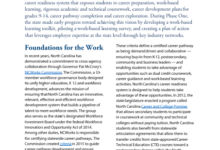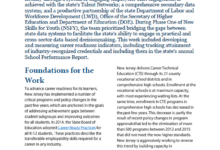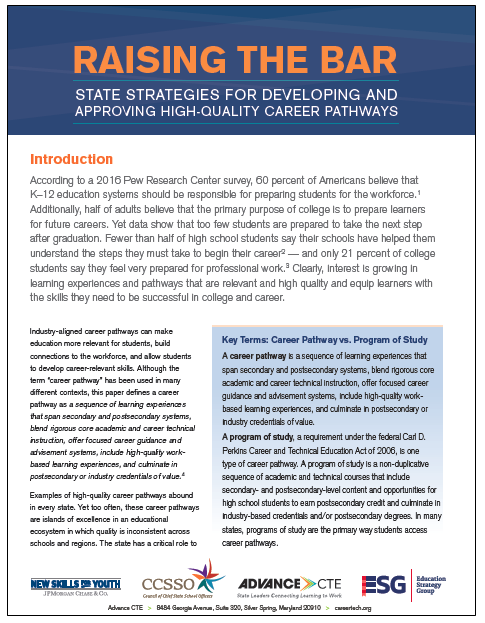Examples of strong programs of study — and career pathways, more broadly — exist in every state. Yet all too often these career pathways are islands of excellence, setting the bar for quality, but requiring further state action to ensure all students can benefit from strong career pathways. While the approach to developing career pathways varies across the nation, state leaders can play a role in promoting quality by leveraging policy, programs and resources to ensure all career pathways meet minimum standards.
This report from Advance CTE examines successes in Tennessee, New Jersey and Delaware to demonstrate how states can use the career pathways approval process to raise the level of quality across the board. The report examines common approaches from the states:
- All relevant stakeholders should contribute to the approval process
- Career pathways approval should be driven by regional and state economic needs
- Linkages to postsecondary and workforce opportunities should be prioritized
All states have processes in place to review and approve career pathways, but not all use them to promote and uphold quality standards. This report describes a few approaches states can take — such as defining quality criteria, using fiscal and accountability policy to incentivize adoption, and providing regional supports — to promote quality through the pathways approval process.
This report was developed through the New Skills for Youth initiative, a partnership of the Council of Chief State School Officers, Advance CTE and Education Strategy group, generously funded by JPMorgan Chase & Co.







